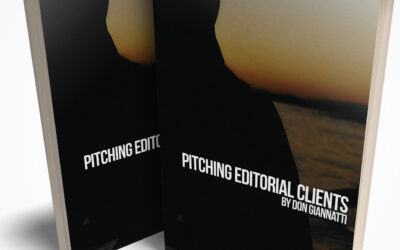FIVE WAYS "IT'S JUST NOT FAIR"
AND WHY YOU SHOULD STOP EXPECTING IT TO BEFive Ways It’s Just Not Fair!
(And Why You Should Stop Expecting It To Be)
Have you ever felt that way or uttered those words in a state of anger, or disappointment, or jealousy? Perhaps you felt cheated or slighted.
You worked all through the night on that science project, only to get an honorable mention. “It’s just not fair.”
You put together a killer bid, awesome mood board, and dug diligently into creative solutions for a client needing a bid… and they went with someone else. “It’s just not fair”.
After finally sending out a promo piece – your first one – you get no response and feel dejected and disappointed. “It’s just not fair”.
Yeah. You are correct. It is not fair.
Fair has nothing at all to do with it.
There is no ‘floating Karma monkey” that decides what is ‘fair’ in your life or that person’s life. Not for her or him or me or you.
Fairness is a mostly legal term… a partnership agreement, or part of a fraud scheme.
But it is NOT part of life.
So we get the platitude thrown at us from well-meaning people who say “Well, life isn’t fair.”
But the problem with that is the idea that it should be, somehow. And it will never be.
“Well, life is not a banana.”
“Well, life is not a sugar-free grande latte with sprinkles.”
“Well, life is not a taco.”
Wait… I may have to rethink that last one. Hmmm.
The feeling of unfairness comes from our expectations, and expectations often come from our misplaced idea that something is owed to us because we tried. We gave it our all. We spent more time, more money, more effort.
We gave up more, we sacrificed more… by golly – we DESERVE to win.
And yet we didn’t.
“It’s just not fair.”
Here are five reasons that “It’s just not fair” should be eliminated from our vocabulary.
- Fair implies rules and compliance. There are no rules, there is no compliance to those rules and there are no arbiters in place even if there were. For something to be “fair”, there has to be an agreed-on set of policies, which must be observed and monitored.
Like running the 500-meter race.
It’s 500 meters.
You run from the start to the end.
The first one over the finish line wins.Fairness is guaranteed by making sure no runner begins before the other, and that no runner cheats by not following the track, or taking performance-enhancing drugs, or getting in the way of the other runner.
One person winning because they are faster is not considered “unfair”.
LIFE is not a sport.
- Being fair to me must involve being unfair to you. I started playing chess at the same time you did. I bought the best chess set, and I studied all the masters, and I spent hours online learning moves. You, on the other hand, just tinkered with it, played your guitar, got a girlfriend, and had fun all summer… and still you beat me. “It’s just not fair”.But why should the other person be penalized for the choices they made? Why do you feel you should be rewarded for the choices you made? Perhaps he is just a better chess player than you are, for reasons we have no understanding of. How is that connected to your efforts and outcomes in any way?
When I was younger, I was a pretty damned good drummer. My teachers called me a natural. I rarely practiced rudiments, I just picked them up and started playing. Three years after purchasing my first kit, I was playing all over the city with jazz and rock bands.
Then I put them away for a couple of decades. Now, I have to work for every damn paradiddle, fill, and lick I can muster. That ‘naturalness’ went away. Younger drummers are infinitely better than I am. Is that ‘fair’? Of course. There is nothing in the playing of drums that is to be construed as ‘fair’. There is no rule, program, courtesy, romantic notion, or arbiter of the choices I made when I put them away?
Is that then “unfair”? If it is somehow fair for me to expect to be great still, is it somehow unfair that I am not? How would I express that I should still be great although I stopped playing? Because I am ME and I am “the man”?
Really? Would you buy that bull?
- Fairness means that there is an expected, measurable outcome. And, well… there isn’t. Not in any endeavor we do. I watched a young lady win a Gold Medal when she wasn’t even expected to place. I watched a horse beat the field by 26 lengths and set a record yet to be beaten (decades later). I watched a young entrepreneur turn a ‘hook up’ app into one of the largest companies in the world.Were those things unfair? How?
Should the skater have simply done what was expected so that the presumed winner would be crowned? Should Secretariat just hung back to 3 lengths so the other horses wouldn’t ‘feel bad’? Should Zucks have stopped at some point and be taken over by some other corporation because he was becoming too successful?
Of course not… fairness has nothing to do with it. Luck, skill, being able to recognize opportunities, right place right time, hard work, really fucking hard work, grit, desire, deep self-awareness, trust in one’s self, trust in others, knowledge, and that ever so elusive spark of genius.
There were dozens of skaters, 8 other horses, and lots of entrepreneurs. How would any of them winning make it “fair” for those who didn’t? The winner has no impact on the ones that didn’t. None whatsoever. (We are not talking about cheating here, that does make it unfair, but cheating is also controlled by the rules of the competition or societal laws.)
- Expecting life to be ‘fair’ removes our responsibility. It presumes that there is some sort of karmic force that will determine your fate no matter how much you put into it. You see ROI in every action. “If I send out these promos, I will get some work.” Not necessarily bucko. If you send out the promos you will have sent out the promos. There is – and there shouldn’t be – any expectations from that action.If you send out the promos, you may not get any hits.
If you don’t send the promos you will definitely not get any hits.
If you send out the promos, you may get a big hit.
If you do not send out the promos you will definitely NOT get a big hit.But if we expect life to be fair, then the number of promos sent should equal a specific number of jobs to be gotten.
And we know that is not how it works. And it is not about fairness, it is about stuff out of our control. It is the moment it was received, the person who got it, what they were thinking about, what jobs they are working on, whether they like the color blue, what they had for breakfast, what their boss said to them 4 minutes ago… I could go on – but you get the idea.
Fair?
What’s that?
- For life to be fair, everything would have to be equal. And that is impossible. My early talent on the drums had no impact on my friend’s ability to play the cello. My photography doesn’t impact your ability to cook amazing tacos (you were wondering how I would sneak in the obligatory taco reference). Your amazing talent in Photoshop has nothing to do with her talent as a writer.For life to be fair we would all have to be at either the highest performing level of what humanity does – all of it – or at the bottom level where we do none of it.
Sounds crazy to even suppose. Everyone is a master at everything, and there is a commission set up to make sure no one becomes more of a master than anyone else at whatever they are doing.
That will never happen, and it shouldn’t. But the absurd thought of it reminds us that the idea that life, or art, or photography, or relationships, or personal success is not in the realm of the word fair.
We’ll leave ‘fair’ on the sports fields and the courts.
Well… if fairness is not something we can inherit because we convert oxygen to CO2, then what can we expect.
Opportunity.
The ability to do, to try, to work hard, to work harder, to do more, create more, try more… to our heart’s content.
I tell my students to give up thinking about the outcome and embrace the process. That’s the win that brings joy. We cannot control the outcome, or what impact our art makes on others, but we can indeed control our process.
And I guess that’s fair.
Stop Being the Best Photographer No One Knows About
Stop Being the Best Photographer No One Knows AboutThere was a time — maybe 10, 15 years ago — when having a solid portfolio and being a decent human being got you work. Word-of-mouth. A few referrals. Maybe a feature in PDN if you were lucky. That time is over, gone,...
Stop Fearing Failure: Be Terrified of Regret.
Stop Fearing Failure - Be Terrified of Regret.Failure Sucks Less Than Regret. There’s a quote I heard recently that nailed a truth I’ve been preaching for years:"Stop fearing failure, but be terrified of regret." Many of the photographers I work with—especially those...
CREATE A “DREAM FIFTY” FOR MAXIMUM IMPACT
DO YOU HAVE A DREAM 50?Create a “Dream Fifty” for maximum clarity and impact. Dream-50 If your marketing plan is sorta like “post some stuff and hope for the best”, well… You’re not alone. But you’re also not in control. Drumroll please! Enter the Dream 50 List — a...
IF CLIENTS CAN’T FIND YOU, IT’S NOT THEIR FAULT
IF CLIENTS CAN'T FIND YOU, IT'S NOT THEIR FAULTSEO is no longer enough.AI search has changed that game forever. We're entering a new stage of AI-driven search, and having a well-crafted landing page is no longer optional—it’s essential. Tools like ChatGPT, Perplexity,...
BUSINESS: SEO IN THE AGE OF AI
SEO IN THE AGE OF AI: CHANGES ARE COMINGWhy SEO Is So Tough for Photographers (And What to Do About It) If you’re a photographer trying to get your website to rank on Google, you’ve probably noticed it’s a lot harder than it sounds. Your site might look gorgeous—full...
PITCHING EDITORIAL CLIENTS
Pitching Editorial ClientsIdeas and strategies for today's photographers.Summary This document explains how to pitch a photo story to a magazine or publication. The author, Don Giannatti, advises photographers to research the publication, understand their style, and...






